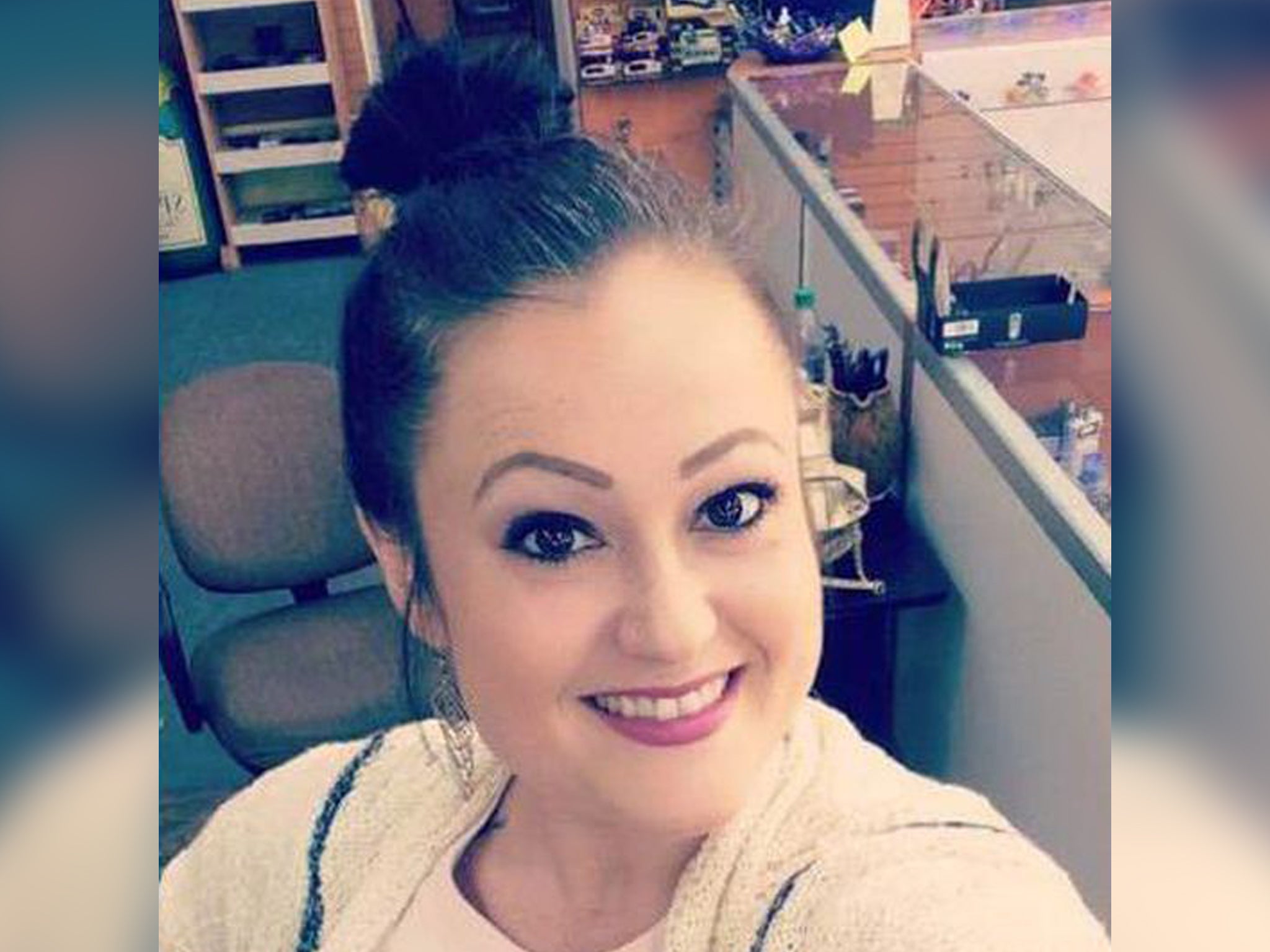Autumn Harris was jailed over $40. Three weeks later, she was dead
A new medical malpractice suit brought by the 34-year-old’s father shines a light on Autumn’s horrific final days, as she slowly died behind bars without having been convicted of any crime. Holly Baxter reports


Autumn Harris was 34 years old when she died in jail of a preventable disease. She was being held on suspicion of stealing just $40 from an acquaintance — and, despite being held for three weeks, she had not been convicted of any crime.
Harris was arrested in Walker County, Alabama on November 13, 2018, and she died in agony 22 days later. “In the simplest terms, Autumn suffocated to death over a period of several days, drowning in a noxious stew of her own infection,” Justin Jones, an attorney who specializes in wrongful death and medical malpractice cases at The King Firm LLC in Alabama, tells The Independent. This was not an inevitable death. It was not a mysterious illness or one that was difficult to treat. Most damningly, Autumn died of a disease she knew she had — and for which she was carrying medication.
Autumn had been diagnosed with pneumonia days prior to her arrest. She had antibiotics prescribed by a doctor (known as a “Z-pack”) in her possession. When she entered incarceration, the pills were checked in with her by a Jasper, Alabama-based health care contractor called Preemptive Forensic Health Solutions (PFHS) that dealt with prisoners’ medical needs when they arrived. Yet, despite her condition visibly deteriorating over a number of days, she was not transported to hospital. In fact, it’s unclear whether she was given access to her antibiotics at all.
“Medical providers at the jail knew from the outset of Autumn’s incarceration knew that she was sick; and, at the very least, reasonably should have known why,” Jones says. “Yet, in the 22 days that followed, they did nearly nothing to care for her. Indeed, relative to her diagnosed respiratory infection, there is no affirmative evidence in this case to suggest… that any PFHS provider, at any time from her incarceration until her death on December 5th, conducted any assessment of Autumn’s health status.” Jones says that expert testimony suggests if Autumn had received medical attention any time up until the morning of December 4th, there’s a good chance she would not have died.
Autumn’s autopsy has been described as “brutal”: Jones describes how her lungs were filled with fluid and pus with widespread inflammation. She had experienced sepsis and multi-organ failure. As she declined, she asked multiple times to be sent to the hospital and was refused, at one point reportedly being told that she simply had anxiety. According to a lawsuit now being brought by Justin Jones on behalf of Autumn’s father, Michael, inmates at the jail described seeing Autumn unable to sit or stand, eventually urinating on herself and clearly hallucinating.
“Autumn’s father, Mike, is one of the most gracious and humble human beings I’ve ever met. Truly,” says Jones. “He didn’t bring this case to set the world on fire. He just wants real and effective accountability for his daughter’s wrongful death. Beyond merely achieving personal peace and closure for the family, justice in this case would be any outcome that effects positive, meaningful change in the way Alabama state and local inmates’ health needs are viewed and handled. That might not change the world; but it would change his.” And it’s a long time coming: Michael Harris filed the lawsuit again PFHS in 2020, yet he won’t get his day in court until May 2023. There has, at least, been some change in the meantime: According to Jones, PFHS’s contract with the Walker County Sheriff’s Office was pulled following Autumn’s death.
“To say that Autumn died ‘as a consequence of failure in the nursing process,’ or some other similarly insipid medico-legal algorithm, though true, grossly undersells the medical negligence in this case,” Jones says. “Autumn died because PFHS providers failed to accord her a modicum of the dignity and respect she deserved and would have been given had she simply been sent to a hospital emergency department for treatment and observation.” Indeed, Jones is clear that he sees this case as a civil rights issue as well as a medical malpractice lawsuit: “Our firm has represented victims in a range of civil rights cases as well as medical malpractice cases throughout the years. But the convergence of the two in the case is something of a unique experience for us.”
I ask Jones if Autumn’s case points to a systemic problem within the United States, where incarceration rates for relatively minor, nonviolent crimes are some of the highest in the world. Indeed, according to the non-profit, non-partisan group Prison Policy Initiative, the United States has the highest incarceration rate in the world, with nearly two million people behind bars at any one time. Over half a million of these are locked up in local jails, and almost all prisoners in these local jails — 445,000 of 547,000 people — have not been convicted of a crime. The crimes they stand accused of are overwhelmingly nonviolent (with 304,000 people out of 445,000 being held on suspicion of committing nonviolent crimes including property, drug and public order offenses.)
Jones prefers not to be drawn into conversations about systemic issues: “Frankly, there are a number and variety of legal and public policy experts out there — far smarter than me — to whom I would humbly defer on this topic,” he says. However, he notes that the paltry amount of money over which Autumn was arrested and held in the jail at Walker County adds a certain amount of pathos to the case: “That Autumn received the equivalent of a death sentence stemming from an allegation of misdemeanor theft certainly renders her demise all the more devastating and cruel.”
PFHS was approached for comment and did not respond.
Bookmark popover
Removed from bookmarks